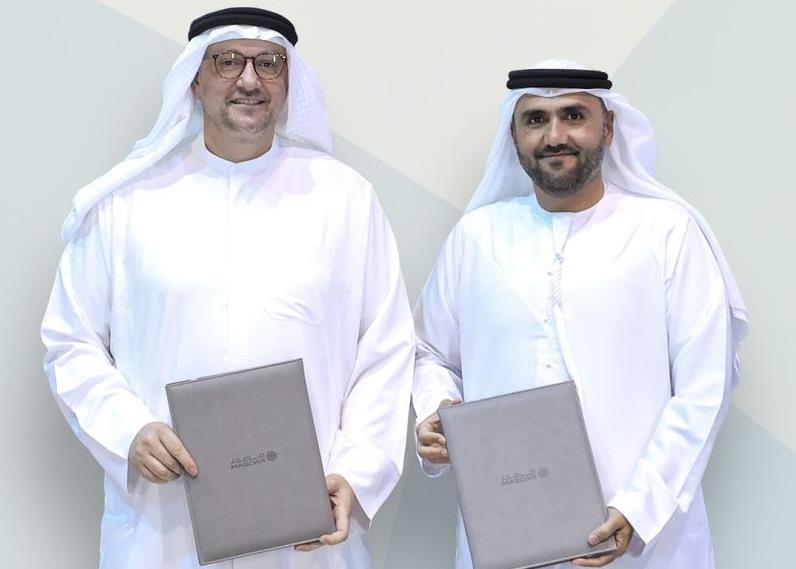
Greeting visitors to Cityscape Abu Dhabi on 20 April, general manager of Abu Dhabi's Urban Planning Council (UPC) Falah al-Ahbabi said the projects on display were serious and would go ahead.
There were about $200bn worth of masterplanned schemes, most to be completed by 2030. That works out at about $100,000 for every person living in Abu Dhabi.
With intentions on that scale, there is little reason to fantasise.
Abu Dhabi has taken over from Dubai, where most real estate schemes have stopped, as the Middle East's most attractive projects market. This spring, no place on earth is more irrevocably committed to comprehensive urban renewal and growth.
The UPC, founded in 2007, has been authorised to review developments within all Abu Dhabi's built-up areas. Without its sanction, major projects cannot proceed. This has given the UPC a unique capacity to define Abu Dhabi's future.
Its vision is mind-boggling. Plans for Saadiyat, at present an uninhabited island, call for a permanent population of 350,000 people. They include a cultural district accommodating the Guggenheim Abu Dhabi and the Louvre Abu Dhabi, both to be constructed in partnership with the original museums in New York and Paris.
Uninhabited Yas island, which will be Abu Dhabi's principal leisure zone, is forecast to have 100,000 permanent residents and a day-time population of about 250,000 people. Most of the work on its first phase, which includes the Yas Marina racetrack, is to be completed ahead of the Abu Dhabi Formula 1 Grand Prix on 1 November. Two more phases are planned. They involve completing the first Ferrari theme park and building a Warner Brothers leisure complex. The total Yas island capital spending budget is about $40bn.
Aldar Properties, the listed joint stock real estate developer, has the government's mandate for Yas island developments. Its existing project portfolio includes the Al-Raha Beach development and Al-Raha Gardens. It is working on masterplans for Motor City, which will be a centre for the automobile industry, and the redevelopment of Mina Zayed after the opening of Khalifa port near Taweelah.
Mubadala Development, the Abu Dhabi government investment company, has been made responsible for developing Sowwah island, which lies between Saadiyat and Abu Dhabi islands.
Implementing masterplan
It will be the centre of Abu Dhabi city's central business district. More than 50 large buildings, including new headquarters for the Abu Dhabi stock exchange, are planned. Investment in Sowwah is likely to be more than $10bn.
Reem island, which lies east of Sowwah, has been masterplanned for about 200,000 residents. Most of its infrastructure has been completed.
The largest project of all is the Capital District, an onshore development close to the new airport that is planned to accommodate all UAE federal government agencies and foreign embassies. It will be a city within a city.
In January, Abu Dhabi's Department of Transport published a surface transport masterplan that sets out the most ambitious urban transport investment programme the Middle East has ever had. It includes a network of metro and tram lines supported by ferry services that will relieve traffic congestion in Abu Dhabi city.
The breakneck pace of construction recorded in Dubai in the past five years will not be repeated, however. Even in Abu Dhabi, private developers are reporting challenges in finding finance for some projects. At least one has cancelled a major scheme.
But the difference is that the government has the money to fill gaps left by the disappearance of private investors. At Cityscape, Aldar announced work was about to begin on the Al-Falah project, a masterplanned development comprising about 5,000 homes for middle-class UAE nationals. It is going to be publicly financed until final buyers can be found.
There is a conviction behind Abu Dhabi's urban plans that has largely evaporated in a world that has, in the past 12 months, lost faith in the future. The scale of what is coming is impressive. But what makes it credible is the deliberation behind Abu Dhabi's pronouncements.
It is good to believe in Abu Dhabi's plans. It is also polite. But facts, not faith, are making the emirate today one of the best places to be in business.
You might also like...

Neom seeks to raise funds in $1.3bn sukuk sale
19 April 2024

Saudi firm advances Neutral Zone real estate plans
19 April 2024

Algeria signs oil deal with Swedish company
19 April 2024

Masdar and Etihad plan pumped hydro project
19 April 2024
A MEED Subscription...
Subscribe or upgrade your current MEED.com package to support your strategic planning with the MENA region’s best source of business information. Proceed to our online shop below to find out more about the features in each package.








